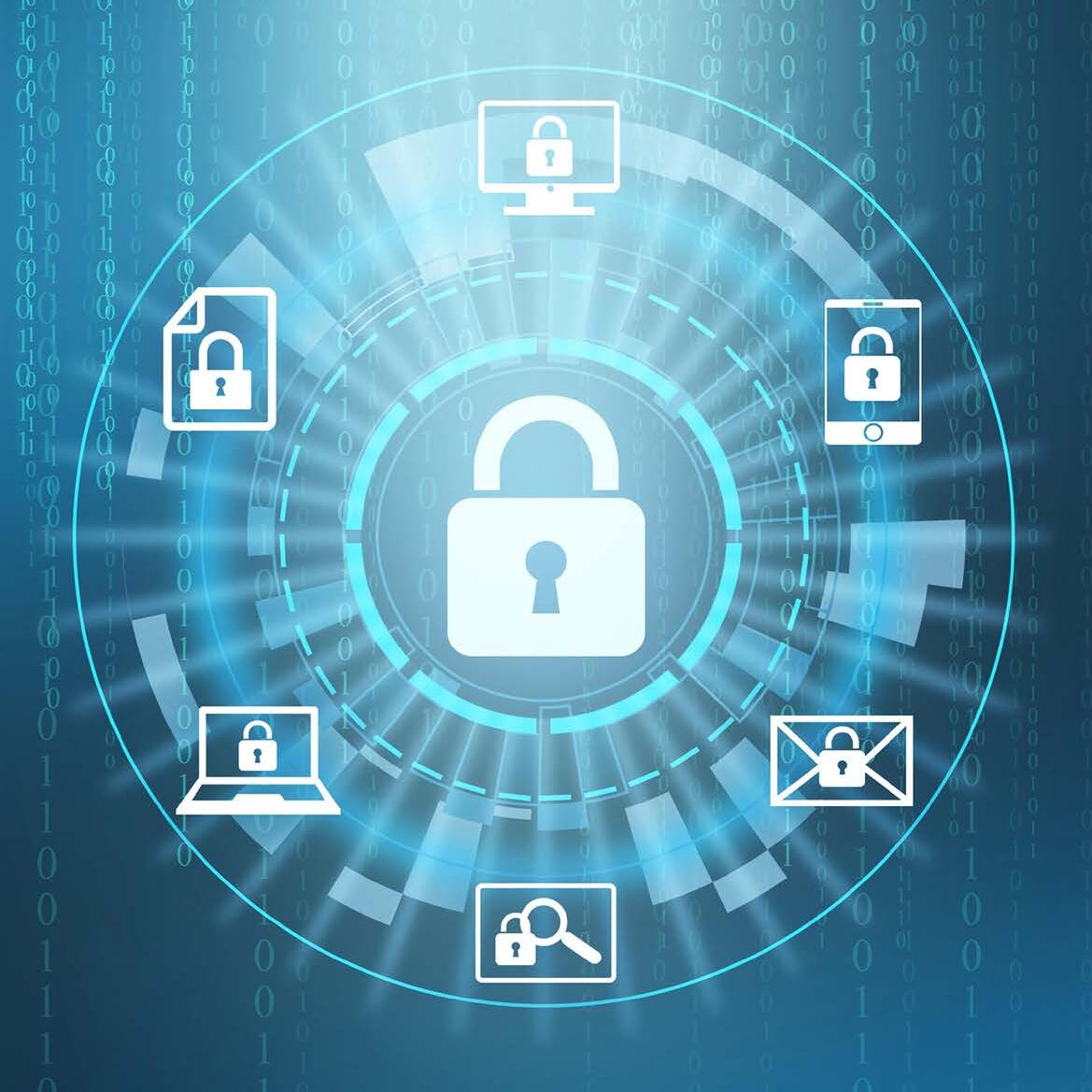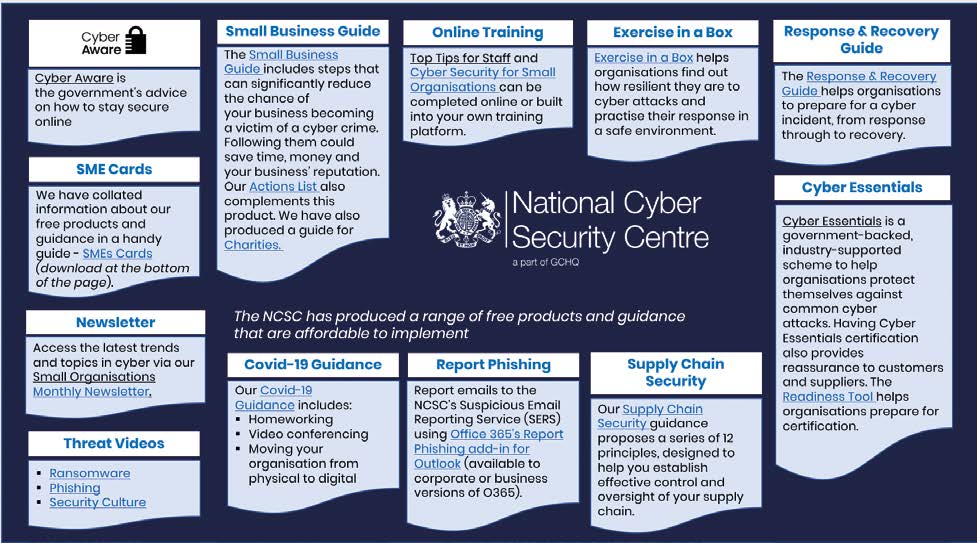What is Cyber Security?
Cyber security is about protecting the devices we all use and the services we access online – both at home and work – from theft or damage. It’s also about preventing unauthorised access to the vast amounts of personal information we store on these devices and online.
Why does Cyber Security matter?
An increasing number of businesses are being seriously impacted by cyber incidents. An incident is a breach of the security rules for a system or service, such as:- Attempts to gain unauthorised access to a system and/or data
- Unauthorised use of systems for the processing or storing of data
- Changes to a systems firmware, software or hardware without the system owners’ consent
- Malicious disruption and/or denial of service For example, a phishing attack might attempt to steal money and passwords, or a ransomware attack might encrypt files preventing access. But why do attacks happen?
- Businesses hold plenty of sensitive information
- Cyber criminals want to make money
- Many cyber incidents are untargeted

Protecting your business from cyber incidents
The National Cyber Security Centre (NCSC), a part of GCHQ, is the UK’s technical authority for cyber security. Its aim is to help to make the UK the safest place to live and work online.
It supports the most critical organisations in the UK, the wider public sector, industry, SMEs as well as the general public.
When incidents do occur, it provides tailored advice to help victims reduce harm, recover effectively and learn lessons for the future.

What are the top threats to businesses?
- Ransomware – Malicious software that makes data or systems unusable until the victim makes a payment.
- Phishing – Untargeted, mass emails sent to many people asking for sensitive information (such as bank details) or encouraging them to visit fake website. You can report suspicious emails directly to the NCSC’s Suspicious Email Reporting Service (SERS) using Office 365’s Report Phishing add-in for Outlook (available to corporate or business versions of O365). You can also report potential phishing messages or scam websites via SERS.
- Virus – Programs which can self-replicate and are designed to infect legitimate software programs or systems. A form of malware.
- Insider Risks – The potential for damage to be done maliciously or inadvertently by a legitimate user with privileged access to systems, networks or data
Who is behind cyber attacks?
- Online criminals – Criminals can be very good at identifying what can be monetised; for example, stealing and selling sensitive data, or holding systems and information to ransom.
- Hackers – Individuals with varying degrees of expertise, often acting in an untargeted way – perhaps to test their own skills or cause disruption for the sake of it.
- Malicious insiders – Use their access to an organisation’s data or networks to conduct malicious activity, such as stealing sensitive information to share with competitors.
- Honest Mistakes – Sometimes staff, with the best intentions just make a mistake; for example, by emailing something sensitive to the wrong email address.
WHERE SHOULD I REPORT A CRIME OR FRAUD TO?
- Follow your organisation’s procedures for reporting internally
- Report to Action Fraud – by calling 0300 123 2040 or go to www.actionfraud.police.uk
- For Scotland report through Police Scotland’s 101 call centre.
- Additionally report to the NCSC via its website.
- In certain circumstances you may be legally required to report to the
- Information Commissioners Office (ICO)
What actions can your business take
Cyber security might seem like a daunting challenge for your business. To help you on your cyber security journey, the NCSC has produced a portfolio of products and guidance tailored for the SME community, that offer tips that are both practical to follow and affordable to implement. By following our advice and guidance, you can significantly reduce the chances of your business becoming a victim of a cyber crime. Find out how to stay secure online with our Cyber Aware Action Plan. Answer a few questions on topics like passwords and two-factor authentication and get a free personalised action plan that will help you improve your businesses’ online security. The six actions outlined in its Cyber Aware campaign are:- Use a strong and separate password for your email
- Create strong passwords using 3 random words
- Save your passwords in your browser
- Turn on two-factor authentication (2FA)
- Update your devices
- Back up your data
- defending yourself against phishing
- using strong passwords
- securing your devices
- reporting incidents
*Statistics are taken from the DCMS Cyber Breaches Survey 2021 – https://www.gov.uk/government/ statistics/cyber-security-breaches-survey-2021
FURTHER INFORMATION- NCSC Supply Chain Security guidance proposes a series of 12 principles, designed to help you establish effective control and oversight of your supply chain.
- NCSC Covid-19 guidance covers home working, video conferencing and moving your organisation from the physical to the digital
- Videos: Ransomware; Phishing; Security Culture
- SMEs Cards: NCSC have collated information about its free products and guidance into a handy guide (download at the bottom of the page).




